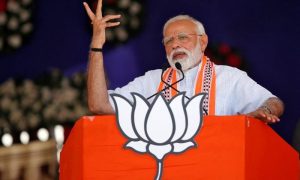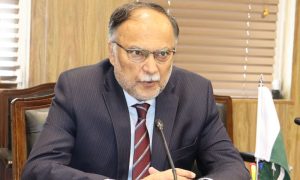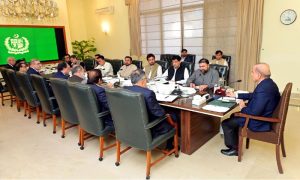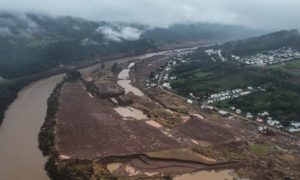By Oybek Arif Usmanov Ambassador of Uzbekistan in Pakistan.
I would like to take this opportunity to focus on the future of our two regions South Asia and Central Asia and express my confidence that the future of our brotherly countries and nations lies with the multifaceted regional links, trade, transport links as well as educational, touristic and people-to-people connects.
Let me stress that such a strategic approach is not only accepted as the way forward for our countries and nations but also is actively promoted by our leaders, expert community and most importantly by our young generation.
It logically emanates from the closeness of cultures and religious traditions old caravan’s road linkages of Central Asia with modern Pakistan, China, Sri Lanka, Nepal, Bhutan, India, Bangladesh and of course Afghanistan.
The rich scientific and cultural legacies of such great scholars as Abu Ali Ibn Sina, Al-Ferghany, Al-Faraby, Al-Khwarazmy, Abu Raihan Beruni and Zahiriddin Muhammad Babur, Allama Muhammad Iqbal are considered to be a common heritage of our two regions.
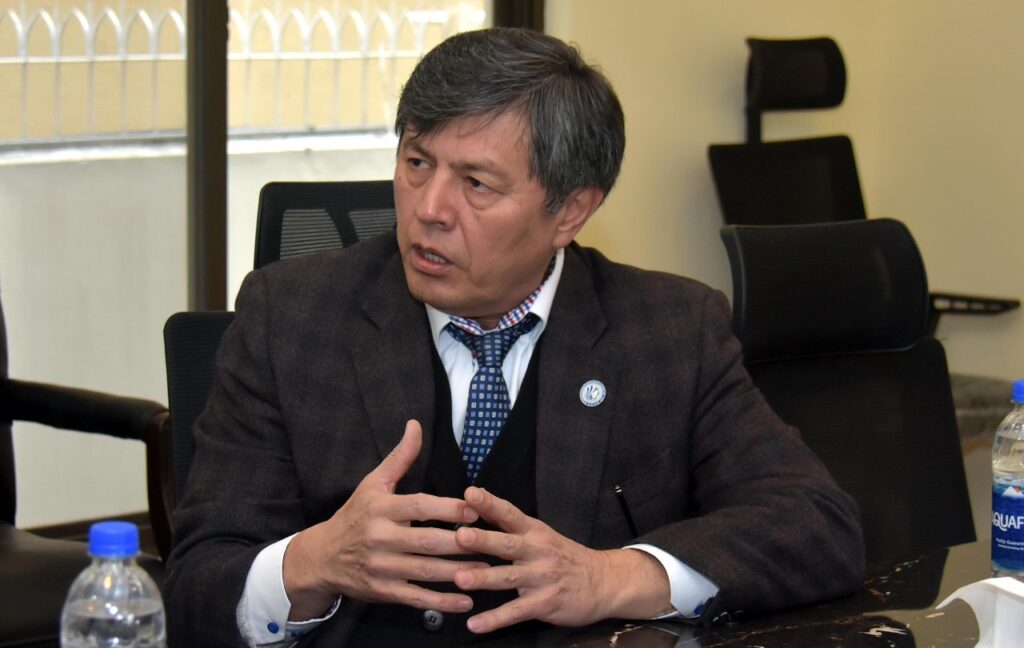
The brilliant works of such classics of our national literatures as Allama Iqbal, Alisher Navoi, Mirza Golib, Khosrow Dehlavi, Abdurakhman Jami are well-known all over the world.
The period of our interactions were brightly manifested during the era of Ghandhara, Harappa civilizations, and Ghaznevids empire with the regions of Samarqand, Bukhara, Khorazm, Termiz which are the well-known centers of Islamic culture enlightenment, science and knowledge.
“I am sure that all Pakistanis are well aware of the common great heritage of such dynasties like Amir Taymur’s, Zahiriddin Muhammad Babur’s (from Ferghana and Samarqand regions of Uzbekistan).
The great successors of Bukharys, Taymurs, Barlas, Termizi, Mirzas in Pakistan had made an enormous contribution to our connectivity, the promotion of peace, freedom and mutual understanding among our nations.
Unfortunately, in the 19th century, due to historical and political circumstances, the genuine connection between the two neighboring regions was disrupted. Between Central and South Asia various obstacles emerged, borders were closed and tensions became more acute which have frequently led to conflicts. The era of cooperation and understanding has given way to a period of confrontation and mistrust.
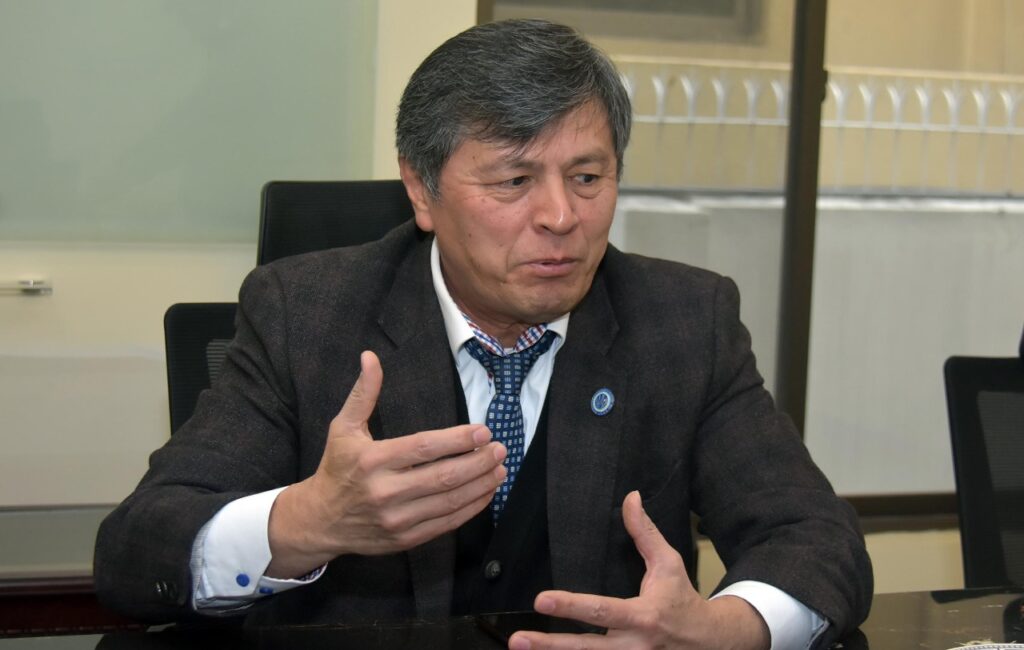
We still experience its negative consequences – there are no effective trans-boundary routes, the trade-economic ties are poorly developed and the potential of the cultural-humanitarian relations has not been utilized in full.
The bilateral meetings of Uzbek and Pakistan Leaders from 2015 up to date gave an important impetus for the revival of the dynamic dialogue between our countries.
There is a great interest in Pakistan for being a transit hub for transport corridors and industrial development as well as reaching the markets of Uzbekistan and all the Central Asian countries and even the far Eurasian continent using the railways and road connections. In effect, Uzbekistan and Pakistan are themselves the largest markets with a joint population of more than 260 mln people.
So the rapid development of Uzbek-Pakistani relations meets the long-term interests not only of our two countries but also has a positive impact on strengthening security and developing trade, economic, communication and humanitarian ties in our regions.
Today, Uzbekistan, Pakistan and Afghanistan are actively cooperating in the implementation of joint economic and infrastructure projects. One of these is the project for the construction of the Mazar-i-Sharif–Kabul–Peshawar trans-Afghan railway, the prospects for which to become part of the New Silk Road have already taken shape. I would say this project is going to be really a “Project of the century” and a game-changer for connectivity.
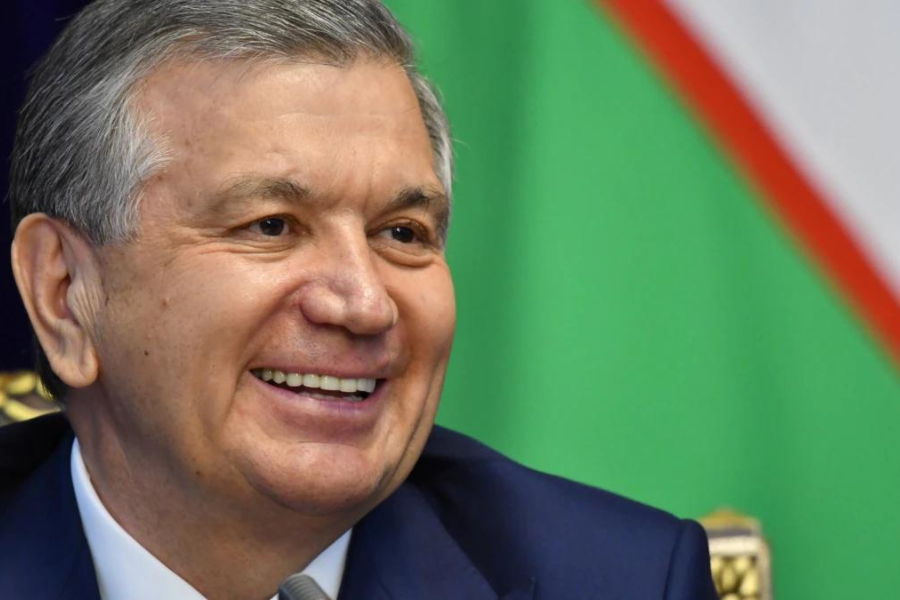
The connectivity approach of Uzbekistan’s president
The first step of my President was the active promotion of confidence-building measures, security, stability and economic integration processes in Central Asia, as a priority direction of the foreign policy of Uzbekistan.
By the initiative of the President of Uzbekistan, a new format of high-level meetings – the Consultative Meeting of the Heads of the Central Asian countries was created for strengthening political confidence and mutual solidarity in Central Asia. As a result, a completely new political environment was created in the region.
The proactive regional policy brought the opportunity for active relations with developed foreign countries and international organizations, this process is going on reaching a new level, and the domains of cooperation have significantly expanded.
The next step for Uzbekistan, which is a double landlocked country, was the development of partnerships in the political sphere, trade and industrial cooperation with the countries of South Asia. In this regard, President of Uzbekistan Shavkat Mirziyoyev and the government of Uzbekistan have paid special attention to Uzbek-Pakistani relations.
In 2015, the former Prime Minister of Pakistan Nawaz Sharif has been invited to Uzbekistan and successful and substantial meetings in Tashkent laid the foundation for connectivity projects between our countries.
Last year alone, our leaders President of Uzbekistan Shavkat Mirziyoyev and Pakistani prime minister(s) held three personal meetings and more than nine fruitful phone calls for the implementation of connectivity projects.
In July 2021, former PM of Pakistan Imran Khan was in Tashkent for an official visit along with participation in the International Conference «Central and South Asia: Regional Connectivity. Challenges and Opportunities» initiated by the President of Uzbekistan in Tashkent.
In March of 2022, President of Uzbekistan Shavkat Mirziyoyev was in Islamabad as a part of a historical state visit and the Declaration of the strategic partnership between our brotherly countries was signed.
During the last 2 months of 2022, the Foreign offices of two countries arranged two fruitful high-level meetings of our leaders – President Shavkat Mirziyoyev and Prime Minister Shehbaz Sharif have successfully interacted in Samarqand (during the SCO Summit) and Astana (Kazakhstan, SICA Summit).
During the last year, the ministers, secretaries and experts of different ministries and entities of Uzbekistan and Pakistan have held more than 160 bilateral off-line and online interactions (including the negotiations in the sidelines of the SCO Summit in Uzbekistan).
In December of 2022, the Deputy Prime-Minister of Uzbekistan paid a visit to Islamabad and had a very fruitful meeting with the Prime Minister of Pakistan, discussions with ministers of finance, commerce, economic affairs, railway, national food security, planning and development and with the business community.
Recently, just a few days ago on January 23-24, Acting Minister of Foreign Affairs of Uzbekistan B Saidov met with his colleague Minister of Foreign Affairs of Pakistan Bilawal Bhutto Zardari during the meeting of ECO Council of Foreign Ministers held in Tashkent.
For sure, the active political dialog and further expansion of cooperation between our governments, ministries and business communities is in the very interest of both countries and regions.

The drivers of a long-term partnership
The active phase of trade-economic relations between Uzbekistan and Pakistan, its intensification started over the last five years when the governments of both states concentrated on mutually beneficial geo-economic partnerships.
If trade turnover between Uzbekistan and Pakistan amounted to just $36 million in 2017 it reached $240 million in 2022 increasing 6,6 times. These figures show that Uzbek-Pak trade volumes are bigger than Pakistan’s trade turnover with all other Central Asian countries.
Even despite the hard pandemic situation of the previous years, we could keep such a high indicator of trade without any decrease. The volume of mutual trade for 2022 as was mentioned reached $240 million (growth is 132%), of which Uzbekistan exports amounted to $127 million and Pakistan has delivered goods and commodities worth $112 million.
In order to further facilitate trade turnover our Governments have successfully signed and now are implementing the Transit trade, Preferential trade agreements, as well as customs and interbank’s cooperation MoUs are intended to raise trade up to $0,5 bln and the aim is to reach $1 bln trade in coming years, Inshalla.
Uzbekistan is now the largest trade partner of Pakistan in Central Asia and Pakistan has been listed among the top 10 main foreign trade partners for Uzbekistan.
Pakistani importers are interested in Uzbek textile yarns, petrochemical products, foodstuff, pure Uzbek silk products and agricultural machinery. Uzbek importers are receiving Pakistani textile and leather garments, pharmaceutical products, chemicals, food items, and agricultural products.
The government of Uzbekistan has created a favourable and attractive investment climate for the Pakistani business community and around 177 joint venture companies are successfully operating in Uzbekistan.
Additionally, according to the joint roadmap Pakistan, Afghanistan and Uzbekistan have successfully conducted a field survey of the routes of the Termez –Peshawar railway line.
For these purposes, a free trade zone the “International Trade Center Termez” is being created and launched in the territory of Termez bordering Afghanistan, with an appropriate logistics infrastructure and a special visa regime for Afghan and Pakistani entrepreneurs.
On March 31, 2022, a meeting of the trilateral working group was held in Termez with the participation of the government delegations of Uzbekistan, Pakistan and Afghanistan, the representatives of the relevant customs authorities, transport and trade companies of 3 countries.
The expansion of interregional trade through Afghanistan will bring economic benefits to the country in the form of transit fees. The Trans-Afghan railway can carry up to 20 million tons of cargo per year, transportation costs will decrease by 30-35% and timing from two weeks up to 3-4 days.
Thus the construction of the railway will significantly reduce the time and cost of transporting goods between the countries of South Asia and Europe through Central Asia.
The very important connectivity project has been launched during the SCO Summit in Samarqand in September 2022 when the agreement on Uzbekistan–Kyrgyzstan–China railway construction has been signed.
The importance and effectiveness of this project will be multiplied significantly increase since it will connect China with Uzbekistan and other Central Asian countries in the shortest way (433 km). This railway route can be synchronized effectively with the Termez–Peshawar railway line and it will significantly increase the volume of shipping goods due to cargo from China to the countries of Central and South Asia and back.
The ongoing implementation of two railway projects will be a real game-changer for Central and South Asia as it will link the Chinese economy with Central Asia, our good neighbor Afghanistan and connect with the Pakistani seaports like Gwadar and Karachi to ensure a full regional connectivity strategy.
Pakistani seaports can provide Central Asian countries a good opportunity to further expand their export geography to the whole world market.
It should be noted that all countries in Central Asia are interested in increasing export volumes and diversifying their foreign trade, entering new foreign markets, as well as creating and using new transport routes.
In order to continue to effectively expand Pak-Uzbek bilateral economic and cultural cooperation, we also developed a strategy for intra-provincial partnership.
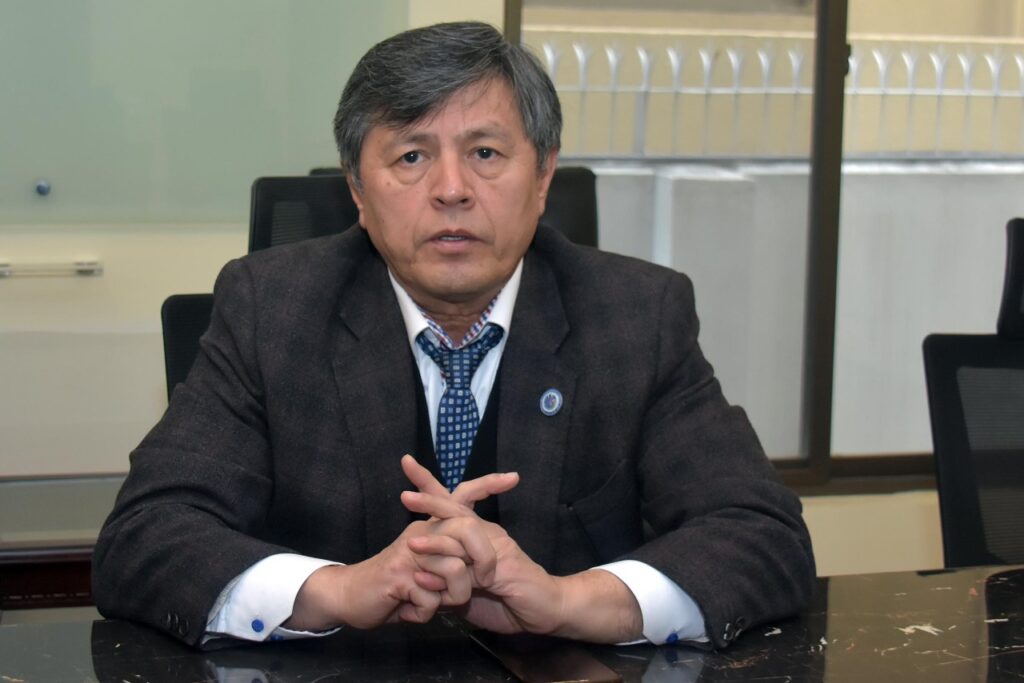
Intra-regional cooperation
That means direct relations, cooperation and communications between respective territories, and provinces of two states without the involvement of the central or federal government.
In 2021, the Honorable Governor of Punjab province Chaudhary Muhammad Sarwar visited Uzbekistan twice, touring the Namangan, Bukhara and Tashkent provinces. His business mission was a great success for the first time in history with the opening of the Pakistan trade house and the Pakistani flag was raised in the heart of Ferghana in Namangan city. The first intra-provincial business forum as well as “B2G” and “B2B” meetings were also conducted.
Pakistan’s delegation was warmly welcomed in Tashkent by the Honorable Prime Minister of Uzbekistan Abdulla Aripov and the two sides had in-depth discussed the implementation of the signed agreement on intra-provincial trade, investment and industrial cooperation between Namangan and Punjab provinces.
Last year, the Governorate and Sarhad Chamber of Khber-Pakhtunkhwa province has established long-term intra-provincial cooperation with Termez city and the Surhandarya region of Uzbekistan.

The Uzbek city of Termez and the Pakistani city of Peshawar became twin cities early this month on January 3.
I believe that it is a prominent time – encouraged by the enormous historical, scientific and spiritual-cultural heritage of our people, our countries should consolidate joint efforts using the complementarity of economies and intellectual capacities which will undoubtedly have a powerful synergy effect.
In conclusion, let me stress again that the history and geo-economical imperatives have created favourable conditions for strengthening fruitful cooperation and connectivity between Pakistan and Uzbekistan and the larger regions of Central and South Asia.













